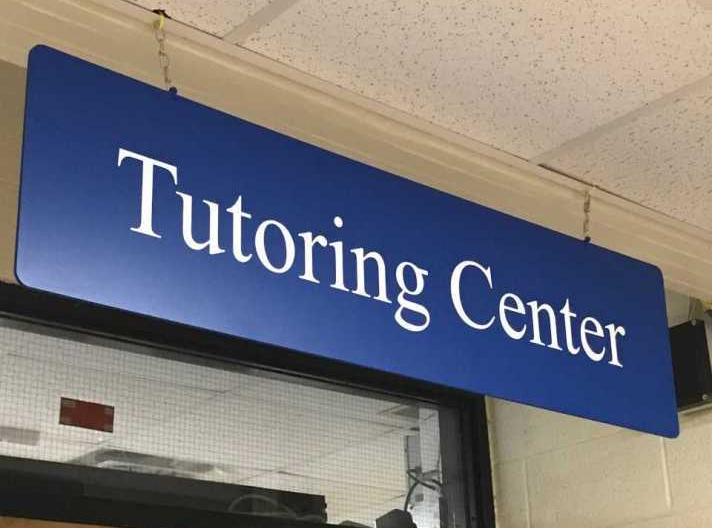Tutoring center aims for balance in online tutoring during isolation.
by Alexandria Zine
Despite the unexpected transition to remote learning, the students and faculty at the Cape Cod Community College (4Cs) Tutoring Center still have the remote in hand to guide students in need of assistance. They’re completing tutoring sessions over Zoom and communicate prior to and following these sessions through email.

Students can still contact their previous peer tutors and hope to receive the assistance they had prior to the transition to remote learning. The Tutoring Center, Math Lab, Writing Center and Bone Room are still operating under these circumstances. According to Lisa O’Halloran, the Academic Coordinator for the Academic Support Services, these hours include: Mondays and Thursdays 9am–7pm, Tuesdays and Wednesdays 9am–6pm, and Fridays 9am–5pm. She also said that Brainfuse on Moodle, which can provide constant guidance, has been a valuable source for students since its installment a few years ago. This service provides a total of six hours for tutoring every month, according to the Academic Support Services. The reliability of Brainfuse – the freedom to access it at any time – is its strongest attribute.
As fundamental as Brainfuse is to the learning methods of 4Cs students, the interface that peer tutors can provide at this time can offer particular guidance. This is one of the many benefits of virtual human interaction. Learning specialists, professional tutors and peer tutors are all available to meet with students. O’Halloran considers this to be the ultimate advantage of communicating via Zoom, while in isolation. These tutors recollect and recognize the material and can offer a few suggestions that other sources are devoid of. Sessions with tutors and other specialists at 4Cs enable students to ask specific questions or receive constructive criticism on their coursework.
According to the online appointment guidelines for the spring semester of 2020, students are able to schedule one appointment for a particular course each day throughout their weekly hours. On-campus tutoring permitted only one appointment for each subject every week. The intention for this shift “…is to provide extra support during this unusual and stressful time.” The peer tutors have modified their typical guidelines to ensure that this collective necessity of quarantine and social distancing does not impact the academic opportunities of students.
If a 4Cs student needs to schedule an appointment, they can do so on TimeTrade. On TimeTrade, students can schedule a maximum of three appointments at one time. Students who opt for a session over Zoom rather than email should expect to receive an invitation prior to their appointment.
According to O’Halloran, the Tutoring Centers “…encourage students to make multiple appointments.”
To access planned sessions on their TimeTrade account, there are a few steps to properly navigating the site. After clicking the ‘Schedule an appointment online’ button, students must insert their username (first name [dot] last name) and password (student ID number). If a student encounters any issues in logging in, they can email Susan Salyh, a faculty member at the Tutoring Center, at ssalyh@capecod.edu. Under the ‘Make appointment’ category, students can select the desired course and enter its code and title. Students can also pick ‘Writing assistance’ if the need for assistance is not tied to a specific subject. Appointments can last between 25 to 55 minutes, based on a student’s needs. To meet with a specific tutor, students can choose ‘Primary Resource (tutor).’ If preferences are irrelevant, the ‘Any Tutor’ option can generate all available tutors and times. The availability of various tutors are shown on the right side of the screen in chronological order. The ‘Cancel’ button will appear next to the appointments students make. After completing any or all changes to their upcoming appointments, students can sign out of their account by clicking the button at the top left corner of the screen.
The adjustment period from on-campus learning to remote learning has not impacted the level of assistance that tutors can provide. O’Halloran feels that this transition has not invited any major issues to arise. Minor issues– such as technical problems, the lack of a headset, or disruptions in a stable internet connection– have been the only obstacles faced by both sides. Even with the universal reshaping of routines and communication from the pandemic, O’Halloran feels that this transition has not shifted the priorities of the tutors or specialists.
“I think our tutors have done a fantastic job adjusting to the change to remote from face to face,” said O’Halloran. “I am so proud of them and the effort they put forth to help our students. They want to make this work and will do what it takes.”
4Cs has so many resources available online during this pandemic, you would be doing yourself a disservice if you didn’t take advantage.
Categories: Around Campus, Student Life